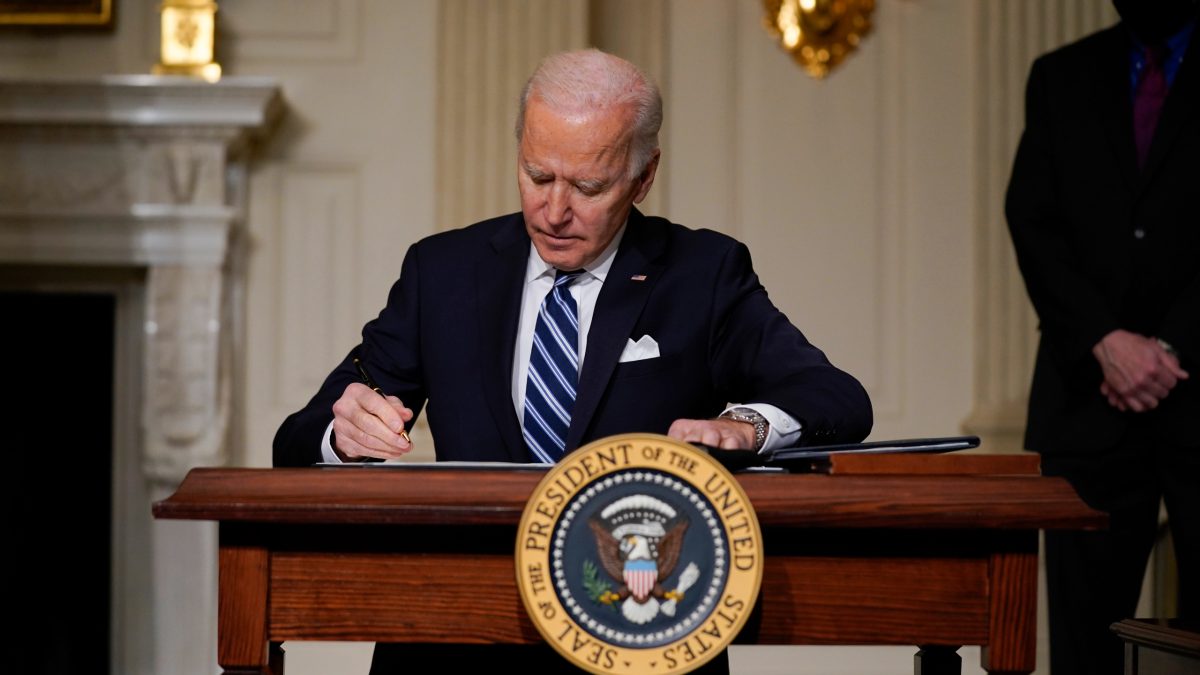[one_third]Liberal – Carmel Rafalowsky
While the topic is difficult to tackle, and the concept is hard to swallow, I must say that I am in favor of physician-assisted suicide and am pleased to see that it will soon be legal in New Jersey.
I think it’s about time we acknowledge as a society that there are illnesses beyond modern medicine’s control, and that they can cause suffering much greater than death for both the patient and family.
Ailments such as terminal cancer can cause significant pain—both physical and emotional—for the patient. Along with this pain often comes a decline in independence, physical abilities, and the looming variable of ‘when?’. The opportunity of physician-assisted suicide can at least restore a semblance of independence and control to these individuals and offer them the dignity of making a weighty final decision for themselves. This act can give distressed patients peace of mind regarding their final days and ensure they spend that time in a manner of their choosing—ideally surrounded by supportive loved ones.
More than anything, I support this bill because I value quality of life above most else. This bill will give individuals with terminal conditions or life-threatening ailments the option to minimize the suffering they will have to endure at the end of their lives. I think that is a noble effort, and I support it.
[one_third]Conservative – Mark Pothen
New Jersey’s governor Phil Murphy signed a bill into law that would provide certain terminally ill patients with lethal medication. In an emotional statement, Murphy contended that, “I have concluded that, while my faith may lead me to a particular decision for myself, as a public official I cannot deny this alternative to those who may reach a different conclusion.”
The Hippocratic Oath clearly states “I will neither give a deadly drug to anybody who asked for it, nor will I make a suggestion to this effect.”Physician-assisted suicide runs completely antithetical to this oath. Physicians shouldn’t be assisting in killing their patients, but should rather offer proper medical care to preserve the life of the patient.
The principle of subjectively defining the value of life based on the amount of pain one is feeling can lead to gross abuses that allow the use of assisted suicide on the most vulnerable among us. Belgium, a nation with extremely liberal laws with regards to physician assisted suicide, originally deemed that physician-assisted suicide could only be applied to terminally illadults. However, even with assurances of strict regulations, the policy now allows physician-assisted suicide to be used on terminally ill children of any age. The medical community shouldn’t be carrying out a policy that actively seeks to snuff out life when in every other scenario they fight to preserve it. Hopefully, political proponents of this policy will recognize the slippery slope that it comes with and reconsider the faux morality of it.
[one_third]Independent – Daniil Ivanov
The new legislation for allowing physician-assisted suicide is about as good of a bill as the state is going to get. It requires that two physicians agree that a patient is terminally ill—meaning that he or she has six months or fewer left to live. A study published in the Western Journal of Medicine found that 63% of the time, doctors overestimated how long a patient had left to live and were accurate 20% of the time. Only in 17% of cases did doctors underestimate how long someone had left to live. This means that between the two doctors evaluating the patient, it is unlikely that one will be inappropriately categorized as being near death.
The law also requires a fifteen-day waiting period between the first and second time that the patient requests a physician-assisted suicide, making sure that the decision is not sporadic. On top of that, the patient is required to have a psychiatric evaluation in order to ensure that they are mentally fit to make an educated decision on the end of his or her life.
If someone is definitely near death, is mentally fit, and has had time to think through his or her options carefully, then they should have every right to have control of their fate. Governor Murphy—a devout Catholic who personally disagrees with physician-assisted suicide—signed the bill into law because it is not the government’s role to make such decisions for people. There are enough safeguards in the legislation to protect citizens from medical malpractice and spur of the moment decisions, but competent adults who have been adequately informed of their condition need no protection from the government.
































